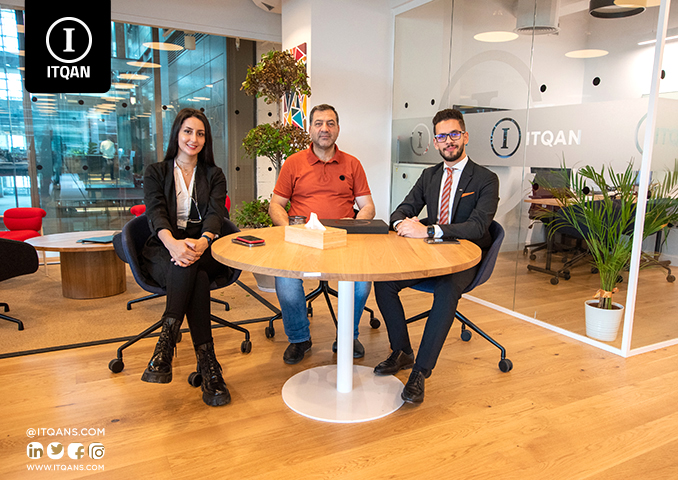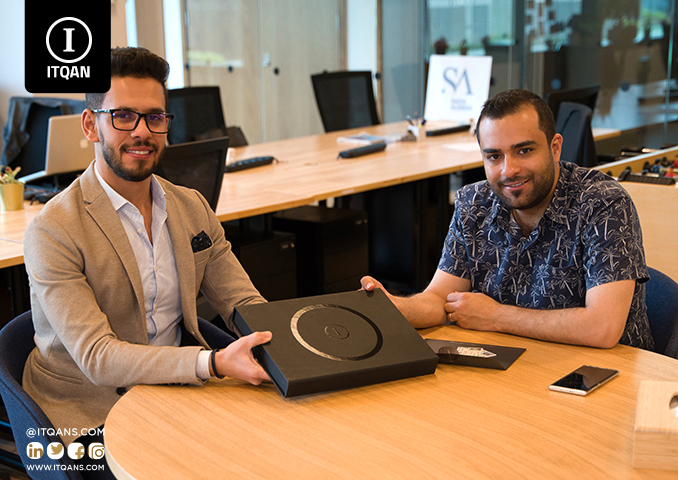Tax Laws in the UAE The UAE has one of the most competitive tax systems in the world, as it seeks to create an attractive investment environment that stimulates economic growth and sustainable development. The country offers flexible tax laws that support foreign and local investments, while maintaining the highest standards of transparency and efficiency. The UAE is known for not imposing taxes on personal income or capital gains, making it an ideal destination for individuals and businesses looking to reduce their tax burden. At the same time, the country applies a value-added tax (VAT) of only 5%, one of the lowest rates in the world, and is imposed only on consumer goods and services.
In light of changing global trends, UAE tax laws The UAE continues to update its tax laws in line with international best practices, while maintaining its position as a leading financial and commercial hub. This includes imposing limited corporate taxes in certain sectors, such as banking and oil and gas companies, while applying international standards to combat tax evasion and ensure compliance. The UAE also offers double taxation avoidance agreements with many countries, which contribute to protecting investors and providing a safe investment environment.
In collaboration with Itqan, companies and individuals can benefit from specialized consultations to ensure full compliance with the UAE tax laws and make the most of the available facilities. Itqan focuses on providing innovative solutions that help clients achieve their financial and business goals in a favorable tax environment, which contributes to achieving long-term success and sustainability.

Table of Contents
ToggleProcedures for establishing a company in the Emirates
The United Arab Emirates is one of the most attractive destinations for investors and businessmen from all over the world. With its advanced investment environment, modern infrastructure, and growth-friendly legislation, the UAE offers ample opportunities for establishing businesses across a variety of sectors. Whether you are looking to establish your company on the mainland or in one of the many free zones, you will find the procedures are easy and flexible, allowing you to start your business quickly and efficiently. The UAE government provides great support to investors by providing a business-friendly environment that is transparent and efficient, with a range of incentives that include tax facilities and simplified legal procedures. Company formation procedures in the UAE
- Choosing the type of business: The first step is to determine the type of business you want to engage in. The activity must be in compliance with local laws, and determine the scope of business that the company will carry out.
- Determine the legal structure of the company: Choose the legal structure of the company based on your business needs. This can be a limited liability company (LLC), a joint stock company, a branch of a foreign company, and other available structures.
- Choosing a company name: Choose a unique trade name that complies with the UAE business naming guidelines. Ensure that the name is not already in use by other companies and reserve it with the relevant authorities.
- Apply for a license: Apply for the appropriate trade license for your business. The procedures for obtaining a license differ depending on whether you are establishing your company on the mainland or in a free zone.
- Preparing legal documents: Preparing and documenting the required legal documents, such as the articles of association and partners’ agreements. These documents must be documented with the relevant government authorities.
- Selecting the company location: Determine the geographical location of the company based on the type of license chosen. The location can be in the mainland or in one of the free zones.
- Obtaining government approvals: The business may require additional approvals from specific government agencies. Ensure that all necessary approvals are obtained before starting the business.
- Company Registration: Submit the required documents to the Department of Economic Development (DED) in the selected emirate or the competent authority in the free zone to register the company.
- Obtaining a commercial license: After reviewing and auditing all documents, a commercial license is issued that allows you to officially start practicing your business in the Emirates.
- Opening a bank account: After receiving the license, you must open a bank account in the company’s name in one of the local banks, to be able to conduct financial transactions.
- Tax registration (if required): Your business may have to register for Value Added Tax (VAT) if its revenue exceeds a certain threshold, to ensure compliance with tax requirements.
By following these steps, you can establish your company in the UAE and start off in a stimulating and supportive business environment. The UAE provides all the ingredients that companies need to succeed, including flexible laws and advanced infrastructure, making it an ideal destination for business and investment.

Advantages of establishing a company in the Emirates
The United Arab Emirates is one of the most attractive investment destinations in the world, offering a thriving economic environment and advanced infrastructure that encourages business formation and economic growth. Thanks to its strategic location at the heart of global trade, its flexible legal system, and the tax exemptions it offers, the UAE has become a major hub for business and trade. Setting up a company in the UAE is not just a step towards entering a thriving market, but also an opportunity to benefit from the many advantages the country offers to investors and entrepreneurs. Whether you plan to set up your company on the mainland or in one of the free zones, you will find that the UAE offers a solid legal and administrative framework that supports innovation and sustainable growth. Advantages of Setting Up a Company in the UAE
- Attractive tax breaks: The UAE is one of the countries that offers great tax breaks, as there is no personal income tax, and companies enjoy income tax exemption in many free zones. This makes it an attractive destination for companies looking to reduce their tax costs.
- Strategic Location: The UAE is located at the crossroads of East and West, making it a vital hub for international trade. The geographical location allows easy access to Asian, European and African markets, enhancing opportunities for growth and expansion.
- Advanced infrastructure: The UAE has an advanced infrastructure that includes world-class airports, modern seaports, and advanced road networks. This infrastructure supports logistics operations and facilitates the efficient movement of goods and services.
- Flexible Legal Framework: The UAE offers a flexible legal system that supports investor rights and provides strong legal protection. Local laws are in line with international standards, ensuring a transparent and fair business environment.
- Easy access to global markets: Thanks to the free trade agreements that the UAE has concluded with many countries, companies enjoy access to multiple global markets without complex trade barriers.
- Political and economic stability: The UAE is considered a politically and economically stable country, which provides a safe and encouraging environment for investment. This stability enhances investors’ confidence in the country’s economic future.
- Simplified incorporation procedures: The UAE government facilitates company incorporation procedures by reducing bureaucracy and providing electronic services that speed up the registration and incorporation process.
- Diversity of investment options: The UAE offers investors a wide range of options, whether in the mainland or free zones, where the most suitable environment can be chosen based on the requirements of the business activity.
- Free Zone Incentives: Free zones in the UAE offer many benefits such as full foreign ownership of the company, the ability to repatriate all profits abroad, and no currency restrictions.
- Flexible labour market: The UAE offers an open and flexible labour market, allowing the recruitment of skilled workers from all over the world, which enhances the efficiency of business operations.
Establishing a company in the UAE is a strategic move for entrepreneurs seeking sustainable growth in a supportive economic environment. With the country’s many advantages, the UAE remains a preferred destination for ambitious investors who want to tap into global opportunities and achieve success in diverse markets.
Learn about taxes in the UAE
The UAE’s tax laws are one of the key elements that make the country a preferred investment destination globally. These laws are flexible and transparent, providing businesses and individuals with a stimulating economic environment free from heavy tax complications that hinder growth. With no personal income and capital gains taxes, and a low VAT rate, the UAE provides a strong incentive to attract foreign and local investments, enhancing its competitiveness on the international stage.
In addition, the UAE’s continuous updating of its tax laws in line with global developments reflects its commitment to providing an advanced business environment that meets the needs of investors and maintains its position as a global financial and commercial hub. This progressive approach helps achieve a balance between maintaining investment attractiveness and ensuring compliance with international standards, which contributes to sustainable economic growth in the long term.
In this context, cooperation with Itqan plays a vital role in enabling companies and individuals to make the most of the benefits provided by the UAE’s tax laws. With its extensive experience and in-depth knowledge of local and international legislation, Itqan provides customized consultations and solutions that ensure full compliance with tax laws and help clients achieve their financial goals efficiently. The Itqan team focuses on providing distinguished services that support sustainable growth and provide peace of mind to investors, making it a strategic partner in the journey of economic success within the UAE. Therefore, cooperation with Itqan represents a crucial step towards achieving financial stability and excellence in a global investment environment characterized by development and innovation.
Frequently Asked Questions About Taxes in the UAE
Are there personal income taxes in the UAE?
No, the UAE does not impose taxes on personal income or capital gains, making it a preferred destination for residents and investors.
What is the VAT rate in the UAE?
A 5% value-added tax is imposed on most goods and services in the UAE.
Are there corporate taxes in the UAE?
Yes, corporate taxes are imposed in some sectors such as banking and oil and gas companies. A federal corporate income tax of 9% is expected to be implemented starting in 2024.
What international standards does the UAE follow in its tax system?
The UAE follows anti-tax evasion standards and adheres to international agreements such as the Double Taxation Avoidance Agreement, to ensure compliance and provide a transparent tax environment.
Can companies benefit from double taxation avoidance agreements?
Yes, the UAE has agreements with many countries to avoid double taxation, allowing companies to reduce tax burdens that may arise from international transactions.
How can I ensure full compliance with UAE tax laws?
Consulting firms such as Itqan can provide specialized services to ensure full compliance and take advantage of the available tax benefits.















